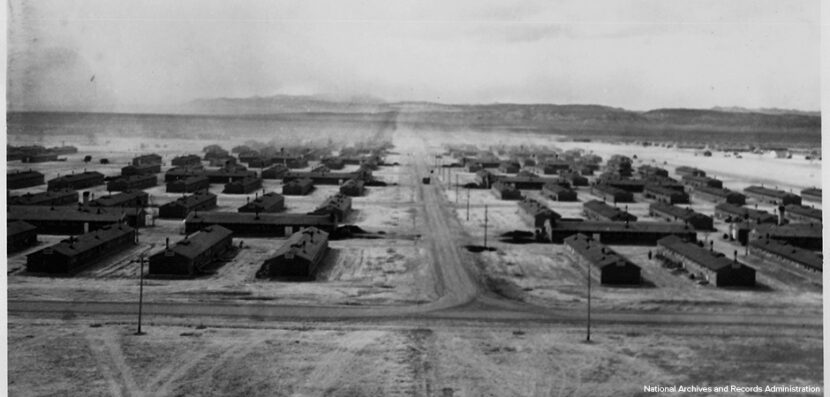- Current Events Nebraska Rejects Winner-Take-All Proposal
- Citizenship Voting Under Age 18
- Citizenship Citizenship in Action
- Democratic Party Biden’s and Trump’s Recent Primary Results
- Elections Trump and Biden Win South Carolina and Michigan Primaries
- Democratic Party Trump and Biden Win Big in Early February Contests

California Apologizes for Japanese Internment
Is it ever possible to make up for the major historical wrongs of the past? This week, the state of California is attempting to do just that: by issuing a formal apology for the Japanese internment camps of the 1940s. Here, Election Central explores what exactly the California state assembly is trying to do, why it’s important, and why it has chosen to do it now.
Dealing with the “Threat”
Beginning in 1942, and for about the next four years, roughly 120,000 Japanese Americans were forced from their homes and placed in internment camps, which the government referred to as “War Relocation Centers”. Why? Because this part of the population was deemed a threat to the U.S. government. After the Japanese bombing of Pearl Harbor in 1941, Japanese Americans were viewed with increasing suspicion. Many believed them to be spies for the Japanese, even though most were American citizens and had lived their entire lives in the United States. This was especially true in California, which has a high percentage of Japanese American residents. In addition to the executive order calling for removal and internment, the California legislature passed other discriminatory measures as well–including resolutions to fire any state employee who was considered disloyal to the U.S.; preventing anyone of Japanese origin from becoming a citizen; and requiring Japanese Americans to give up their dual citizenship.
Those who were interned in the camps lost their homes, jobs, and property, and lived in extremely harsh conditions. Interned citizens endured food shortages, inadequate housing, cold, no medical care, and in some cases, abuse by guards.
Making Amends
Decades later, the Civil Liberties Act of 1988 attempted to make up for past wrongs by formally apologizing to Japanese Americans on behalf of the United States government, and awarding $20,000 to anyone who had been interned as an attempt to help make up for the losses they suffered during that time. Since then, the State of California has created additional resolutions formally apologizing for other dark chapters of American history–such as the forced deportations of Mexican-Americans during the Great Depression, anti-Chinese laws of the mid-1800s, and the genocide of Native Americans.
Now, California’s bipartisan HR 77 bill attempts to follow that legacy by formally apologizing on behalf of the state to anyone affected by the Japanese internment camps of the 1940s.
Why Now?
Albert Muratsuchi, a Democratic State Assemblyman in the California legislature, has fought every year of his term to have February 19 declared an official day to remember the Japanese Americans who were interned during World War II. (This day is significant because it was on February 19, 1942, that President Franklin D. Roosevelt issued Executive Order 9066, allowing the State Department to evacuate and intern anyone considered a “threat.”) But this year, in response to the Trump administration’s incarceration of immigrant children in cages at the U.S. southern border, Muratsuchi wanted to take things a step further. Therefore, he and several of his colleagues decided to draft the bipartisan HR 77. Muratsuchi believes that his state should “lead by example” by standing up against racism, prejudice, and genocide–both in the past, and today.


